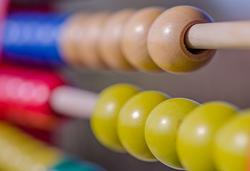
Algorithms for Rapid, Low Cost Tissue Stem Cell-Specific Counting
Now, …everything will change.
BOSTON (PRWEB)
March 05, 2020
In September 2016, stem cell biotechnology company Asymmetrex introduced its AlphaSTEM Test™ technology. The AlphaSTEM Test™ is the first, and still only, available technology that provides the cell-specific count or dose of tissue stem cells. Other technologies that attempt to provide information about the number and quality of therapeutic tissue stem cells are unable to distinguish them from more abundant non-stem progenitor cells. Although non-stem progenitor cells can have therapeutic effects, only tissue stem cells can provide long-term cures.
Although needed in academic stem cell research, stem cell biomanufacturing, and stem cell medicine, adoption of the AlphaSTEM Test™ has been limited. James Sherley, M.D., Ph.D., founder and director of Asymmetrex, attributes this initial response to two main factors. “There’s a lot of misinformation in the stem cell industry about the nature of tissue stem cell preparations and how counting stem cells specifically would solve many of the current problems faced by the industry and patients.” To address the need for better knowledge of the properties of tissue stem cells and their preparations, this week the company launched its recently developed podcast series on “Counting Stem Cells” on the international stem cell industry networking platform RegMedNet.
Today at the 6th Annual Congress of the Perinatal Stem Cell Society in Salt Lake City, Utah, Director Sherley will address what he thinks is the second cause of slow adoption of the company’s initial technology. “Our tech is an amazing advance for the stem cell industry, but it takes a lot of time to do – previously several weeks to get an answer – even though an answer available nowhere else; and it’s rather expensive compared to other tests that confound the marketplace.” In his talk today, Sherley says, “Now, …everything will change.”
Using its computational strength, Asymmetrex has discovered mathematical algorithms that allow simple cell count data from a few days of culture to be used to calculate the stem cell-specific count of a sample. The new foundational stem cell algorithms address the need for timely, inexpensive stem cell-specific counting. The members of the Perinatal Stem Cell Society are an ideal audience for this first public report. Transplant therapies for children with leukemias have needed a means to insure sufficient blood stem cells for many years; and tissue stem cells from the umbilical cord are currently a major focus for the development of new stem cell therapies.
Asymmetrex is now accelerating its efforts to identify investors and industry partners who market basic cell counter devices. The company plans to integrate the new algorithms with existing electronic cell counters to develop the first tissue stem cell counters for tissue stem cell research, tissue stem cell biomanufacturing, and stem cell therapies.
Asymmetrex, LLC is a Massachusetts life sciences company with a focus on developing technologies to advance stem cell medicine. Asymmetrex’s founder and director, James L. Sherley, M.D., Ph.D. is an internationally recognized expert on the unique properties of adult tissue stem cells. The company’s U.S. and U.K. patent portfolio contains biotechnologies that solve the two main technical problems – production and quantification – that have stood in the way of successful commercialization of human adult tissue stem cells for regenerative medicine and drug development. In addition, the portfolio includes novel technologies for isolating cancer stem cells and producing induced pluripotent stem cells for disease research purposes. Asymmetrex markets the first technology for determination of the dose and quality of tissue stem cell preparations (the “AlphaSTEM Test™”) for use in stem cell transplantation therapies and pre-clinical drug evaluations. Asymmetrex is a member company of the Advanced Regenerative Manufacturing Institute BioFabUSA and the Massachusetts Biotechnology Council.
Share article on social media or email:

